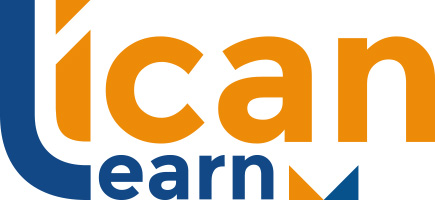ICAN Learn focuses on a mentoring approach. We have highly qualified staff to ensure that every student has the best experience and a positive outcome.
Aaron Davis – CEO/Managing Director
As CEO/Managing Director and co-founder of the Indigenous Consumer Assistance Network Ltd (ICAN) and co-founder of ICAN Learn (its social enterprise registered training organisation), Aaron brings passion and experience to build ongoing expertise within the Indigenous community; growing leadership opportunities.
Tracey McCurdy – Executive Officer
Tracey has been a financial counsellor for 15 years. She has worked as a Bushfire Financial Counsellor through Victorian disasters and specialises in working with clients impacted by problem gambling, family violence, and other specialist roles. As an agency manager in Victoria over the last 10 years, Tracey has been instrumental in linking practical outcomes with education to grow the financial counselling workforce in regional Victoria and has taught as a casual teacher at ICAN Learn for the last four years. Tracey holds qualifications in social work, health and human service management, training and assessment, and human resources.
Paul Rankin – RTO Operations Manager
Paul has worked in the financial/accounting sector and in community services and more recently combined these two areas to be a financial counsellor for over 5 years. He has significant leadership and administration management experience and brings these skills to oversee the day-to-day operations for ICAN Learn. Paul is previous student of ICAN Learn and has completed, amongst other qualifications, the Diploma of Financial Counselling, Diploma of Community Services and a few of the skill sets that ICAN Learn offers.
Jess Carter – Administration Coordinator
Jess cares for ICAN Learn administration and is the key point of contact for enquiries. Jess holds a Bachelor of Design (visual communications) and Certificate IV in website production. Jess has extensive experience in administration in Australia and the UK. Jess will use her design skills to improve the student journey and build great experiences for those that receive our marketing.
Tessa Delves – Administration
With a background in childcare, Tessa brings a caring and organised approach to her role in administration. Her experience working with children has honed her communication and multitasking skills, which she now applies to supporting the smooth operations of our team. Outside of work, Tessa enjoys exploring local op shops for hidden treasures and capturing moments through photography, finding inspiration in both. She’s passionate about staying connected to her creative side while ensuring everything behind the scenes runs seamlessly.
Natasha Syed Ali – Training & Learning Coordinator
Natasha is an experienced financial counsellor and transitioned her career from casual to part time teacher with ICAN Learn in 2019. Natasha has a passion for community development and financial literacy and brings a large amount of expertise to ICAN Learn. Natasha’s financial counselling skills make a real difference to all students at ICAN Learn.
Aimee Williams – Trainer & Assessor
Aimee started working for ICAN as a Yarning Money Mentor and has recently taken on the role of Team Leader for the ICAN Thrive Business Unit. Aimee recently completed her studies as a student with ICAN Learn and has come on board as a Trainer & Assessor delivering the Certificate IV in Community Services and Financial Literacy Education skill set. Aimee is very passionate about sharing her knowledge and empowering learners to make change to better their lives.
Annette Devereaux – Trainer & Assessor
To come
Karen Wright-Kay – Trainer & Assessor
To come
Lisa Simpson – Trainer & Assessor
To come
ICAN Learn has a number of casual teachers that also contribute to our team and our students. If you are a qualified financial counsellor and interested in teaching, please email administration@icanlearn.edu.au




